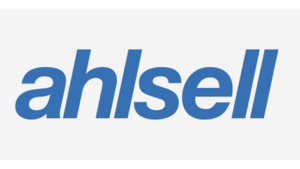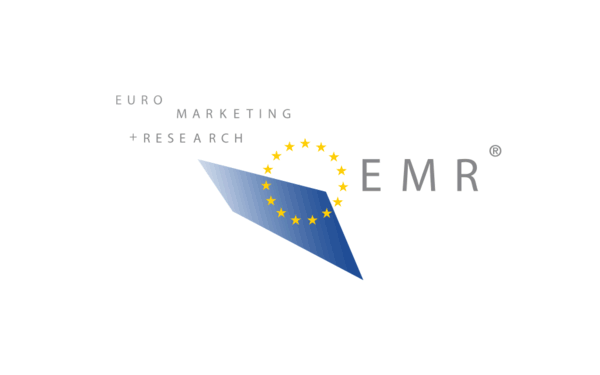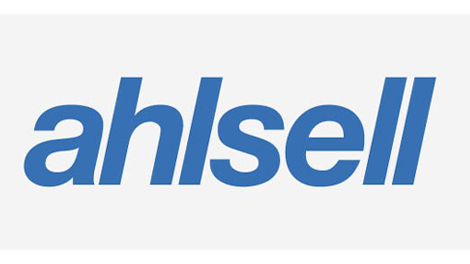Ahlsell – Ahlsell assigned highest rating, ‘Platinum’, by EcoVadis
 Ahlsell’s sustainability work has been assessed by sustainability rating agency EcoVadis for the seventh consecutive year.
Ahlsell’s sustainability work has been assessed by sustainability rating agency EcoVadis for the seventh consecutive year.
Last year, Ahlsell reached a new milestone when it was rated ‘Gold’ for the first time, in recognition of its focused efforts to build a more sustainable society. This year, Ahlsell has achieved the highest, ‘Platinum’, rating.
“We are extremely proud that our improvement efforts have paid off. Receiving a ‘Platinum’ rating from EcoVadis strengthens both our position as a more sustainable option for our customers and our brand as an attractive employer. It’s also reassuring for our suppliers to know that we’ve received a ‘Platinum’ rating from EcoVadis and that we can share their sustainability efforts with our customers,” says Christina Lindbäck, CSO at Ahlsell.
EcoVadis’ global network has analysed more than 75,000 companies, which are assessed and rated from 0 to 100. Ratings are based on 21 criteria in the areas of environment, HR, including employee rights, ethics and sustainable procurement. The methodology is based on international CSR standards, including the Global Reporting Initiative, the UN Global Compact and ISO 26000. This year, Ahlsell rose five points, from 68 to 73 out of a total of 100 possible points.
“I would like to extend my gratitude to all the employees who have made those improvements during the year, enabling us to achieve EcoVadis’ highest rating. With that said, we have not reached perfection and will continue to work to raise our rating and become even better at delivering sustainable products, services and solutions,” continues Christina Lindbäck.
The 2022 result means that Ahlsell’s sustainability work ranks among the top five percent in its category and the top one percent of all rated companies.
Source
Ahlsell
EMR Analysis
More information on Ahlsell: See full profile on EMR Executive Services
More information on Claes Seldeby (Group CEO, Ahlsell AB): See the full profile on EMR Executive Services
More information on Christina Lindbäck (CSO – Sustainability and Communications Director, Ahlsell AB): See the full profile on EMR Executive Services
More information on Ahlsell Sustainability Strategy: See the full profile on EMR Executive Services + https://www.ahlsell.com/sustainability/sustainability-report/
More information on EcoVadis: https://ecovadis.com + Since its founding in 2007, EcoVadis has grown to become the world’s largest and most trusted provider of business sustainability ratings, creating a global network of more than 75,000 rated companies
More information on the Global Reporting Initiative (GRI) Standards: https://www.globalreporting.org + GRI (Global Reporting Initiative) is the independent, international organization that helps businesses and other organizations take responsibility for their impacts, by providing them with the global common language to communicate those impacts. We provide the world’s most widely used standards for sustainability reporting – the GRI Standards.
The GRI secretariat is headquartered in Amsterdam, the Netherlands, and we have a network of seven regional hubs ensuring we can support organizations and stakeholders worldwide.
More information on the United Nations Sustainable Development Goals (SDG):
- United Nations Global Compact (UNGC): https://www.unglobalcompact.org + The world’s largest corporate sustainability initiative: a call to companies to align strategies in operations with universal principles on human rights, labour, environment and anticorruption, and take actions that advance societal goals.
- At the UN Global Compact, we aim to mobilize a global movement of sustainable companies and stakeholders to create the world we want. That’s our vision.
- To make this happen, the UN Global Compact supports companies to:
- Do business responsibly by aligning their strategies and operations with Ten Principles on human rights, labour, environment and anti-corruption; and
- Take strategic actions to advance broader societal goals, such as the UN Sustainable Development Goals, with an emphasis on collaboration and innovation.
- To make this happen, the UN Global Compact supports companies to:
- United Nations Global Compact 10 Principles:
- Human Rights
- Principle 1: Businesses should support and respect the protection of internationally proclaimed human rights; and
- Principle 2: make sure that they are not complicit in human rights abuses.
- Labour
- Principle 3: Businesses should uphold the freedom of association and the effective recognition of the right to collective bargaining;
- Principle 4: the elimination of all forms of forced and compulsory labour;
- Principle 5: the effective abolition of child labour; and
- Principle 6: the elimination of discrimination in respect of employment and occupation.
- Environment
- Principle 7: Businesses should support a precautionary approach to environmental challenges;
- Principle 8: undertake initiatives to promote greater environmental responsibility; and
- Principle 9: encourage the development and diffusion of environmentally friendly technologies.
- Anti-Corruption
- Principle 10: Businesses should work against corruption in all its forms, including extortion and bribery.
- Human Rights
- The 17 SDGS (Sustainable Development Goals) by 2030:
- Detailed explanation of each of the 17 SDGS: https://www.unglobalcompact.org/sdgs/17-global-goals

More information on the ISO 26000 standard: https://www.iso.org/iso-26000-social-responsibility.html + ISO 26000:2010 provides guidance rather than requirements, so it cannot be certified to unlike some other well-known ISO standards. Instead, it helps clarify what social responsibility is, helps businesses and organizations translate principles into effective actions and shares best practices relating to social responsibility, globally. It is aimed at all types of organizations regardless of their activity, size or location. The standard was launched in 2010 following five years of negotiations between many different stakeholders across the world. Representatives from government, NGOs, industry, consumer groups and labour organizations around the world were involved in its development, which means it represents an international consensus.
EMR Additional Notes:
- ESG (Environmental, Social and Governance):
- Refers to the three key factors when measuring the sustainability and ethical impact of an investment in a business or company. Most socially responsible investors check companies out using ESG criteria to screen investments.
- ESG metrics are not commonly part of mandatory financial reporting, though companies are increasingly making disclosures in their annual report or in a standalone sustainability report.
- There is not a standardized approach to the calculation or presentation of different ESG metrics.
- Environmental: Conservation of the natural world
- Climate change and carbon emissions
- Air and water pollution
- Biodiversity
- Deforestation
- Energy efficiency
- Waste management
- Water scarcity
- …
- Social: Consideration of people & relationships
- Customer satisfaction
- Data protection and privacy
- Gender and diversity
- Employee engagement
- Community relations
- Human rights
- Labor standards
- …
- Governance: Standards for running a company
- Board composition
- Audit committee structure
- Bribery and corruption
- Executive compensation
- Lobbying
- Political contributions
- Whistleblower schemes
- …
- Environmental: Conservation of the natural world
- Criteria are of increasing interest to companies, their investors and other stakeholders. With growing concern about he ethical status of quoted companies, these standards are the central factors that measure the ethical impact and sustainability of investment in a company.
- Consequently, ESG analysis considers how companies serve society and how this impacts their current and future performance.
- CSR (Corporate Social Responsability):
- Framework or business model that helps a company be socially accountable to itself, its stakeholders, and the public.
- The purpose of CSR is to give back to the community, take part in philanthropic causes, and provide positive social value. Businesses are increasingly turning to CSR to make a difference and build a positive brand around their company.
- CSR tends to target opinion formers – politicians, pressure groups, media. Sustainability targets the whole value chain – from suppliers to operations to partners to end-consumers.
- CSR vs. ESG:
- CSR is a company’s framework of sustainability plans and responsible cultural influence, whereas ESG is the assessable outcome concerning a company’s overall sustainability performance.
- The major difference between them is that CSR is a business model used by individual companies, but ESG is a criteria that investors use to assess a company and determine if they are worth investing in.

